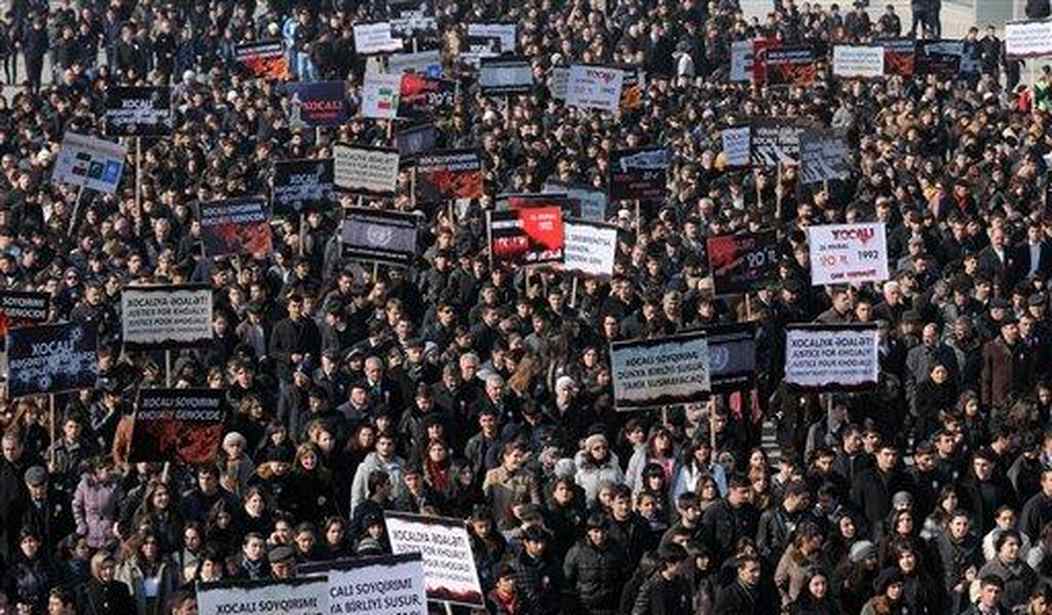The United States has done much to keep alive the memory and learn the lessons from the genocides of the 20th century. The Jewish Holocaust, the Tutsi Genocide in Rwanda, Srebrenica, and the Armenian Genocide – most recently recognized by the Biden administration - are seared in the minds of us all.
When discussing genocide, commentators typically focus on terrifying headline numbers – thousands, sometimes millions of victims. But the definition of genocide is not a numerical one. The United Nations defines this crime as “intent to destroy, in whole or in part, a national, ethnic, racial, or religious group”. The benchmark for genocide is not metrics, but morality – and design.
Those who applaud the United States for its recognition of genocides around the world would do well to recall this fact. It means that massacres smaller in number, but with equally destructive intent, deserve the same acknowledgment which our government and society grant to the better-known violations of humanity. Shining a light on some of the less understood corners of human infamy of the last century should be a duty of journalists, historians, and politicians.
As Americans, we watched with a victor’s satisfaction the collapse of the Soviet Union. Unfortunately, with those same eyes we became blind to the appalling human fallout from that chapter of history just as it produced an eruption of inter-ethnic and cross-border violence of unprecedented brutality.
Of all these, the first and most vicious was between Armenia and Azerbaijan over the Azerbaijani region of Karabakh – whose majority ethnic Armenian citizens had lived in peace for decades alongside their Azerbaijani neighbors. Terror reigned across the region, culminating in the horror of the Khojaly massacre. This week marks the 30th anniversary of this atrocity. International media did bear witness and report their findings. It is our shame that the world failed in both proper acknowledgement at the time and, in turn, allowed those ultimately responsible to escape accountability.
Recommended
Brutal eyewitness reports carried by the Times of London, Reuters, The New York Times, The Washington Post, and others spoke of beheadings of children, of mass graves, of journalists walking through streets littered with dead civilians. The victims were Azerbaijani civilians; their attackers were the Armenian Separatists' Army. For Americans, this echoes the Sand Creek Massacre where the Colorado militia slaughtered and mutilated innocent Cheyenne villagers of all ages and genders.
In subsequent weeks and months, following the Khojaly massacre, further eyewitness accounts and forensic investigations emerged. Human Rights Watch reported it as the largest massacre of the entire period. Yet again, the messages went primarily to an unhearing audience.
Today, Azerbaijan has regained control of the greater part of its lost territories. But nearly 1 million people, driven from their homes a generation ago, remain as internally displaced persons (IDPs) in Azerbaijan; 4,000 civilian dead remain missing and unaccounted, including a number of the missing among the 600 victims of Khojaly.
The explicit and unambiguous intention was the erasure of Karabakh’s Azerbaijani population, culture, and history. Former Armenian President (and Defense Minister at the time of the massacre) Serzh Sargsyan said so himself: “Before Khojaly, the Azerbaijanis thought that they were joking with us, they thought that the Armenians were people who could not raise their hand against the civilian population. We needed to put a stop to all that. And that’s what happened.”
Despite these traumas in recent living memory, both countries are today slow walking toward a peaceful settlement. Important barriers to peace remain – not least the historical memory of terror and murder ignored by the world; and for that very reason, felt all the more bitterly by the people of Azerbaijan.
In our quest to support the cause of peace, we must recognize our responsibility to remove barriers by properly acknowledging the evils of the past. The Khojaly massacre was the beginning and headline event in a concerted act of genocide.
The United States has made great strides in identifying and condemning genocide across the world. The Khojaly Massacre deserves that same recognition and condemnation.

























Join the conversation as a VIP Member